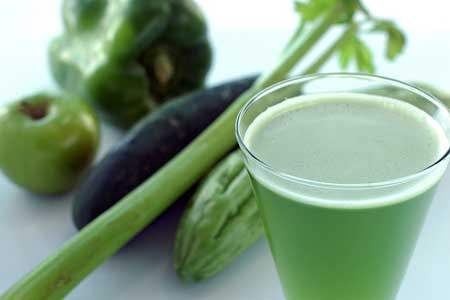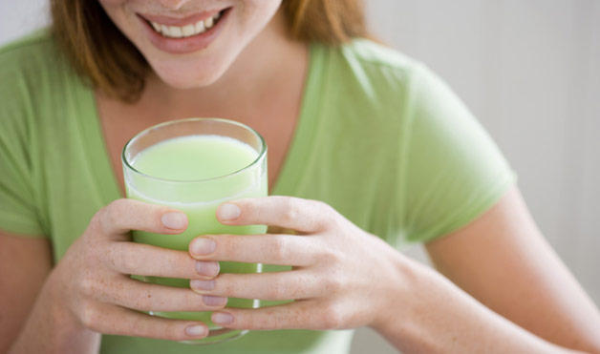
Tips For Juicing For Optimal Health, Part 4
 This week I've dedicated my blogging to the health practice of juicing vegetables for optimal health. If you've missed Part 1, Part 2 or Part 3 of Tips For Juicing For Optimal Health, I suggest you back up and read those first.
This week I've dedicated my blogging to the health practice of juicing vegetables for optimal health. If you've missed Part 1, Part 2 or Part 3 of Tips For Juicing For Optimal Health, I suggest you back up and read those first.
By now I hope you're convinced you want to try juicing and you're pretty comfortable with knowing what you need to make a delicious, nutritious high quality juice. I only have a couple tips left and mostly want to help you with choosing the right equipment. If you've ever shopped for a juicer, I'm sure you know that the options are endless as are the price differences. Hopefully I can make the process of selecting the right juicer a little less daunting. But first I want to discuss something that always comes up when we discuss juicing vegetables.
Organic Versus Conventionally Grown Vegetables
There have been numerous studies attempting to discern whether organically grown produce was any more nutritious than conventionally grown. There have been mixed results. Some studies have shown that organically grown vegetables and fruit have higher vitamin content than the conventional. While others showed little or no significant difference. Where I think they are missing the mark is they are not taking into consideration the toxins, pesticides and chemicals present on the conventionally grown foods. For now, to be considered organic, fruits and vegetables need to be non-GMO (genetically modified) and grown under organic limitations. That means organic fruits and vegetables cannot have pesticides and chemicals on them anywhere in the process of growing or production (so it seems).
Chemical fertilizers, pesticides and fungicides are used almost limitlessly in the mass production of our produce. These toxins, some of them known cancer causing agents, end up in our blood and our tissues and organs. With that said, undoubtedly it is better to consume organically grown over conventional regardless of how much Vitamin C or A each one of them has. You don't want toxins building up in your precious tissue. I promise you!
Granted, not everyone can afford nor has access to organically grown produce. In that case I would say it is better to consume conventional fruits and vegetables than none at all. The benefits far outweigh the downfalls. In fact it is more important to eat organic meats than it is organic produce. This is because animals are very eficient at storing toxins in their fat and transfer them easily to those who consume their flesh.
The Environmental Work Group tests the produce in America every year and produces a list of the top twelve most contaminated fruits and vegetables. They call it The Dirty Dozen. They also list those with the least contamination called The Clean 15. If you can't do all organic produce, I highly suggest you at least purchase those on the Dirty Dozen list as organics only. If you can't afford any organics then don't buy the Dirty Dozen at all. This way you are at least avoiding those with highest chemical and pesticide content.
Choosing A Juicer
 There are different types of juicers available for personal use. They can be classified by the way that they extract juice from the pulp. Most people are familiar with centrifugal juicers. These juicers have a centrifuge style basket that spins at high speed to force the juice out of the pulp. Some of these juicers push the pulp out of a chute so you can continue juicing without having to empty the basket, while others have to be stopped for cleaning after making about a glass of juice. Centrifugal juicers have a tendency to heat up while spinning at high speeds. This heat can damage and destroy some of the live enzymes and heat sensitive nutrients in the juice. For this reason I don't believe these are the best juicers, especially if you're trying to get the most bang for your buck. They also don't get as much juice out of the pulp as the other types.
There are different types of juicers available for personal use. They can be classified by the way that they extract juice from the pulp. Most people are familiar with centrifugal juicers. These juicers have a centrifuge style basket that spins at high speed to force the juice out of the pulp. Some of these juicers push the pulp out of a chute so you can continue juicing without having to empty the basket, while others have to be stopped for cleaning after making about a glass of juice. Centrifugal juicers have a tendency to heat up while spinning at high speeds. This heat can damage and destroy some of the live enzymes and heat sensitive nutrients in the juice. For this reason I don't believe these are the best juicers, especially if you're trying to get the most bang for your buck. They also don't get as much juice out of the pulp as the other types.
A masticating juicer is one that turns an auger with teeth and it basically chews the juice out of the vegetables and fruit. These are more efficient at extracting the nutrients out of produce, leaving little juice and mostly fiber behind. These juicers typically push the pulp out of one end while the juice drips down part way through the chamber into a waiting container.
 Similar to the masticating juicer is the newer single auger juicer like the one pictured above. This is the one that I use and sell on my website (FREE SHIPPING!). It turns a single auger at a very low speed. I think this is an affordable and excellent option for juicing for optimal health. It too extracts more juice than the centrifugal juicers, and does not heat up and destroy nutrients. Omega Juicers has also designed an upright version (seen left) that doesn't take up the space of the original. I highly recommend one of the masticating juicers.
Similar to the masticating juicer is the newer single auger juicer like the one pictured above. This is the one that I use and sell on my website (FREE SHIPPING!). It turns a single auger at a very low speed. I think this is an affordable and excellent option for juicing for optimal health. It too extracts more juice than the centrifugal juicers, and does not heat up and destroy nutrients. Omega Juicers has also designed an upright version (seen left) that doesn't take up the space of the original. I highly recommend one of the masticating juicers.
Juicers come in all sizes and prices. I hope that the information I've provided you here will help you find the one that works the best for you. Remember, it's better to juice than to not juice at all!
That concludes our series on Tips For Juicing For Optimal Health! Please share your questions or tips either here or on our Facebook page. Happy juicing!
A thorough blood test can help uncover nutritional deficiencies and potential issues. Sign up now for a FREE Blood Chemistry Analysis Consultation to learn how this analysis can help you on your journey to greater health!


